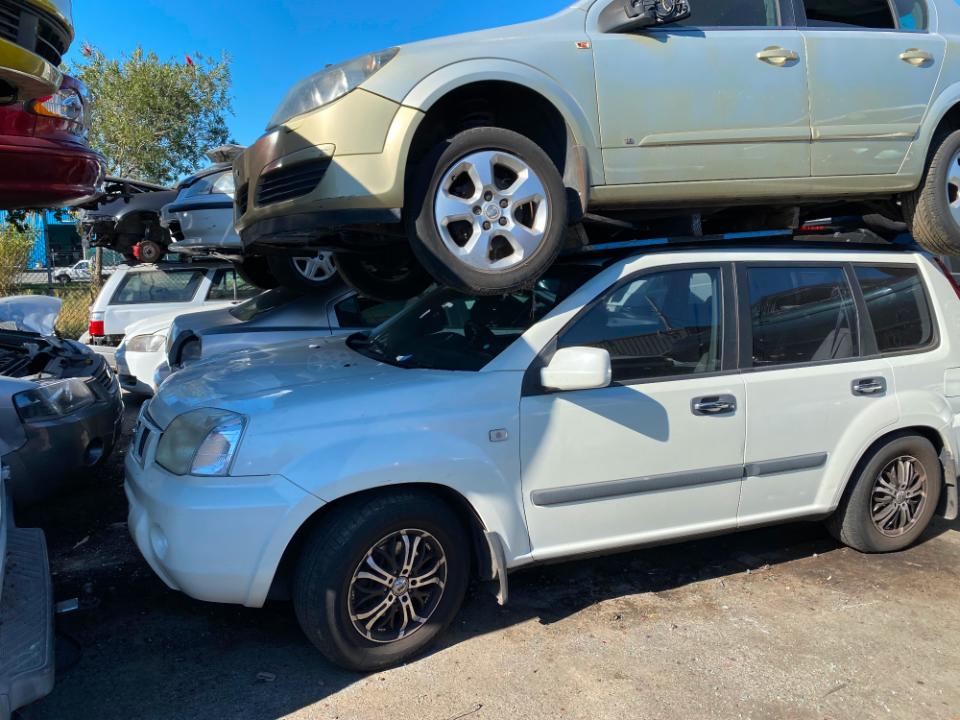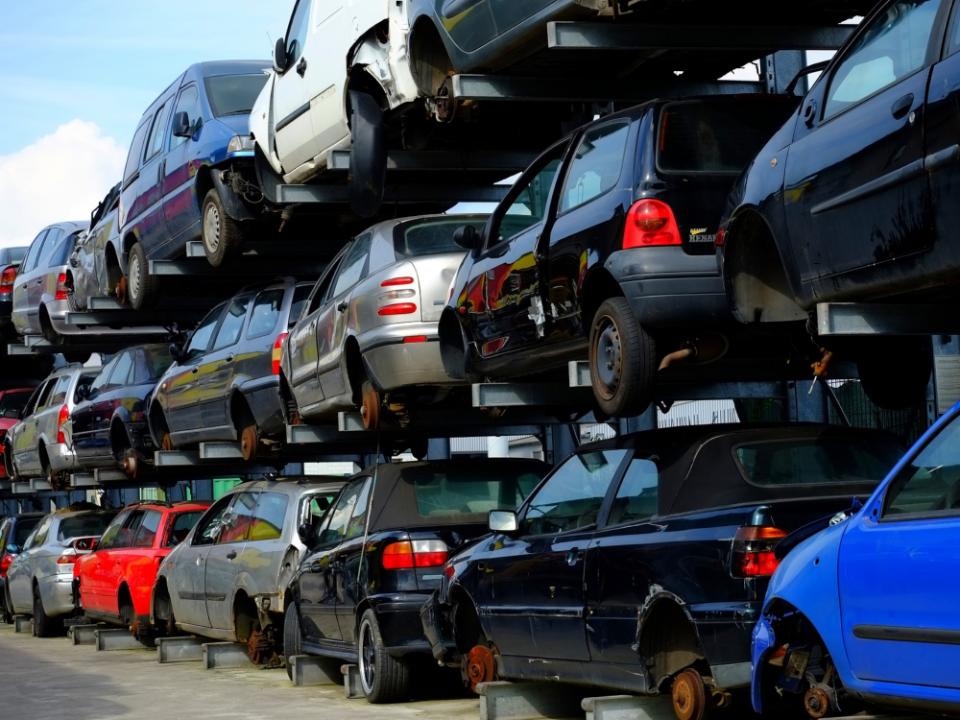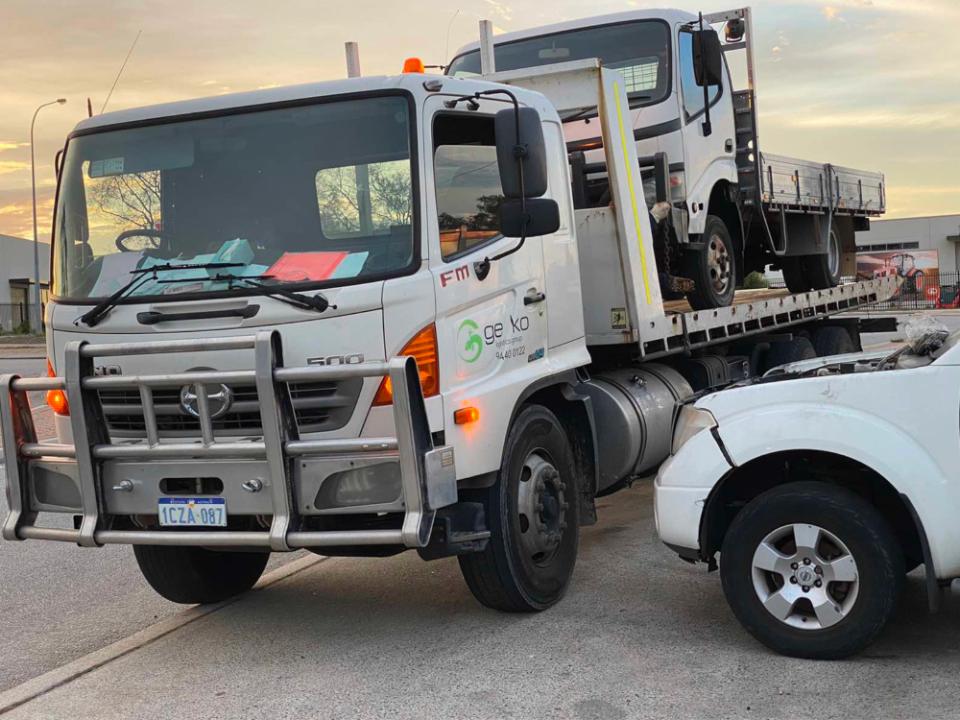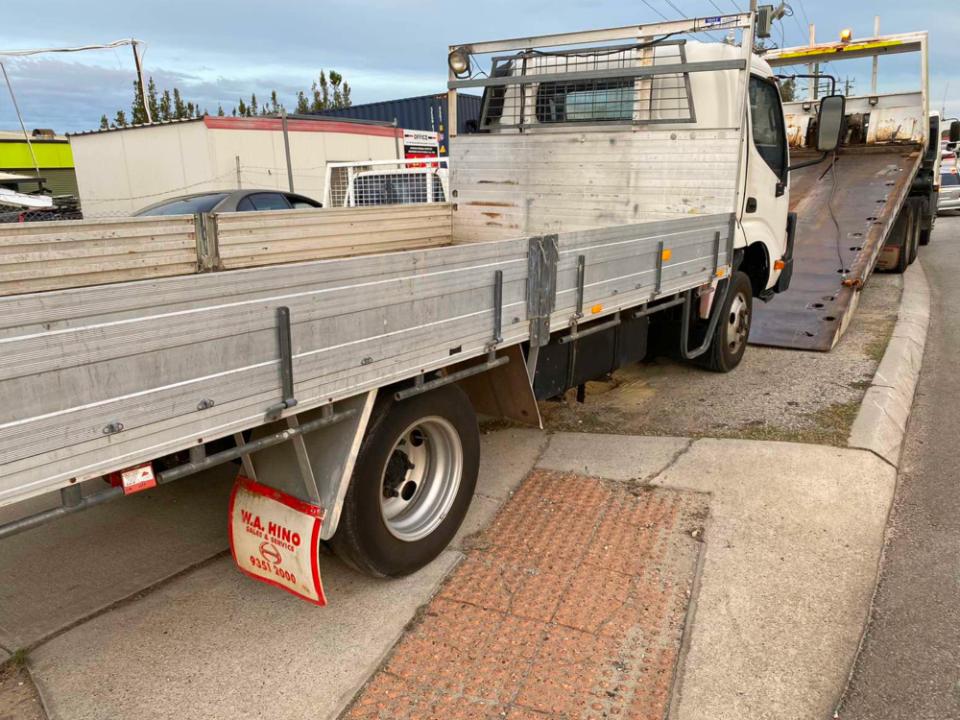Introduction
With around 15 million vehicles reaching the end of their useful life each year worldwide, the potential for recycling and reusing car parts is enormous. Yet, improper disposal of these vehicles can lead to environmental issues.
Did you know that approximately 75% of a car's components can be recycled? In today’s environmentally conscious world, the proper disposal and recycling of end-of-life vehicles is more important than ever. With millions of cars reaching the end of their useful life each year, it’s crucial to understand the process and benefits of scrap car recycling and wrecking. Not only does this help reduce environmental impact and conserve valuable resources, but it also supports the local economy.
Understanding scrap car recycling and wrecking is crucial for Perth residents not only for environmental reasons but also for economic and regulatory compliance. As our city grows and evolves, proper management of end-of-life vehicles becomes increasingly important. In this guide, we will delve into everything you need to know about scrap car recycling and wrecking services in Perth. From understanding the environmental and economic benefits to choosing the right service provider, this post will equip you with the knowledge to make informed decisions and contribute to a more sustainable future. It will provide you with some information you need to know about how to responsibly dispose of your scrap car, the benefits of recycling, and how to choose the right service provider.
What is Scrap Car Recycling?
Scrap car recycling is the process of taking an old or unwanted vehicle and breaking it down to recover valuable parts and materials. These items are then reused or recycled into new products.
The recycling process typically involves several steps:
- Collection and Towing: Your car is picked up and transported to a recycling facility.
- Dismantling: Valuable parts and fluids are removed from the vehicle.
- Crushing and Shredding: The remaining car is broken down into smaller pieces.
- Sorting and Recycling: Materials are separated and sent for recycling or disposal.
Scrap car recycling is fantastic for the environment. It cuts down on landfill waste, saves natural resources, and lessens pollution. Plus, it helps the economy by providing materials for new products and reducing the need for raw materials.
Environmental Impact
Waste Production and Pollution:
Cars contribute significantly to landfill waste when not properly recycled. Each vehicle contains various materials, from metals to plastics, that can take years to decompose. Improper disposal can lead to harmful chemicals leaching into the soil and water. For instance, the lead from car batteries and the oil from engines can cause severe environmental pollution.
Resource Depletion:
The extraction and processing of raw materials for new cars deplete natural resources and energy. Recycling cars helps mitigate these issues by recovering valuable metals like aluminum, steel, and copper. It can reduce the need for virgin resources. This not only conserves natural resources but also decreases energy consumption associated with manufacturing new parts.
Economic Benefits:
Scrap metal recycling supports local industries by providing a steady supply of materials for manufacturing. This recycling process helps to create jobs in the automotive recycling sector and related industries. Additionally, it reduces the costs associated with raw material procurement and waste management.
Circular Economy:
The concept of the circular economy emphasizes the importance of reusing, recycling, and reducing waste. Car recycling is a perfect example of this model, where end-of-life vehicles are not simply discarded but are instead dismantled and repurposed. This can contribute to a more sustainable and efficient economic system.
How Scrap Car Recycling Works
As said, scrap car recycling involves dismantling vehicles to recover usable parts and materials for reuse or recycling. The process ensures that valuable resources are not wasted and hazardous materials are handled properly.
Process Overview:
- Collection and Towing: The first step involves collecting the scrap vehicle, usually through a towing service. The vehicle is transported to a recycling facility where it will undergo the dismantling process.
- Dismantling: At the facility, the vehicle is dismantled. Reusable parts such as engines, transmissions, and other components are removed and either refurbished for resale or recycled.
- Crushing and Shredding: The remaining parts of the vehicle, including the body, are crushed and shredded into smaller pieces. This process helps to separate different materials, such as metals and plastics.
- Sorting and Recycling: The shredded materials are then sorted using magnetic and mechanical processes to separate metals from non-metals. Recycled materials are sent to appropriate recycling streams, while non-recyclable components are disposed of safely.
Types of Scrap Cars:
- Accident Damaged: Vehicles that have been involved in accidents and are no longer roadworthy. These cars are typically dismantled and recycled in a similar manner to end-of-life vehicles.
- End-of-Life Vehicles: Cars that have reached the end of their useful life. These vehicles are thoroughly dismantled to recover valuable materials and parts.
- Unwanted Vehicles: Vehicles that are still operational but are no longer needed by their owners. These can be sold for parts or recycled depending on their condition.
Technological Advancements:
Recent advancements in recycling technology have improved efficiency in the recycling process. Innovations such as automated dismantling systems, advanced sorting technologies, and improved shredding equipment help maximise the recovery of valuable materials and minimise environmental impact.
Challenges
There are a few challenges in the scrap car recycling process. Some of them include:
- Hazardous Materials: Proper handling and disposal of hazardous materials such as batteries, fluids, and airbags are crucial to prevent environmental contamination.
- Electronic Waste: Modern vehicles contain a variety of electronic components that require specialised recycling processes.
- Market Fluctuations: The value of recycled materials can fluctuate based on market demand that can affect the profitability of recycling operations.
The Importance of Car Wrecking
Car wrecking, or auto wrecking, involves dismantling vehicles that are no longer usable and salvaging parts and materials for reuse. This process plays a critical role in the recycling industry by providing a source of affordable parts and recovering valuable materials.
Safety and Environmental Impact:
- Hazardous Materials: Car wreckers are responsible for properly disposing of hazardous materials such as oil, coolant, and battery acid. This ensures that these substances do not pose a threat to the environment.
- Pollution Reduction: By dismantling vehicles in a controlled environment, car wreckers help prevent pollution from leaking fluids and toxic materials.
Economic Benefits:
- Part Salvage: Car wreckers salvage reusable parts such as engines, transmissions, and body panels, which can be sold at lower prices than new parts. This provides cost-effective options for car repairs and maintenance.
- Resource Recovery: Valuable materials like metals and plastics are recovered and recycled, reducing the need for new raw materials.
- Support for Aftermarket Industry: Car wreckers supply parts to the aftermarket industry, supporting local businesses and providing affordable solutions for vehicle repairs.
Role in Automotive Industry:
- Part Supply: Car wreckers play a vital role in supplying parts to the aftermarket industry. This supports vehicle maintenance and repair at a lower cost.
- Restoration: Car wreckers contribute to the classic car restoration hobby by providing hard-to-find parts for vintage vehicles.
Community Impact:
- Job Creation: The car wrecking industry creates jobs in various sectors, including dismantling, sales, and administrative roles.
- Economic Benefits: By supporting local businesses and providing affordable parts, car wreckers contribute to the overall economic well-being of the community.
Scrap Car Recycling and Wrecking Services in Perth
Local Regulations:
In Perth, regulations for scrap car recycling are designed to ensure proper disposal and recycling practices. These regulations cover aspects such as the handling of hazardous materials, documentation requirements, and environmental protections. Adhering to these regulations helps ensure that recycling processes are conducted responsibly and legally.
Choosing a Service Provider:
When selecting a scrap car recycling and wrecking service, consider the following factors:
- Reputation and Reviews: Check customer reviews and ratings to gauge the reliability and quality of the service.
- Service Options: Look for providers that offer comprehensive services, including pickup, dismantling, and recycling.
Our Services:
At Scrap Car Perth, we offer a range of scrap car recycling and wrecking services tailored to meet your needs:
- Pickup and Towing: We provide convenient pickup and towing services to collect your scrap vehicle and transport it to our facility.
- Dismantling: Our experienced team dismantles vehicles carefully to recover reusable parts and ensure proper handling of hazardous materials.
- Recycling Practices: We are committed to environmentally friendly recycling practices, maximising the recovery of valuable materials and minimising waste.
Local Environmental Initiatives:
Perth has several environmental programs related to scrap car recycling, including incentives for recycling and initiatives to promote sustainable practices. These programs aim to reduce the environmental impact of end-of-life vehicles and support local recycling efforts.
Comparison of Services:
Different scrap car recycling services in Perth offer various options, including full-service recycling, parts removal, and eco-friendly practices. Compare services based on factors such as convenience, pricing, and environmental impact to find the best option for your needs.
Finding a Reputable Provider:
To ensure you choose a reputable provider, consider the following criteria:
- Certifications: Look for certifications from industry organisations that indicate a commitment to best practices and regulatory compliance.
- Insurance: Verify that the provider has insurance coverage to protect against any potential issues during the recycling process.
- Customer Support: Choose a provider that offers excellent customer support such as clear communication and responsive service.
How to Prepare Your Car for Recycling or Wrecking
Before recycling or wrecking your car, you will need to provide the following documents:
- Title: Proof of ownership of the vehicle.
- Registration: Current registration documents.
- Photo ID: A valid ID to confirm your identity.
Vehicle Condition:
- Running Vehicles: If your vehicle is still operational, it may be sold for parts or refurbishment. Ensure it is in a clean and accessible condition.
- Non-Running Vehicles: For vehicles that are not running, ensure that all fluids are drained and that the vehicle is accessible for towing.
Personal Items:
Before your vehicle is picked up, remove all personal belongings and valuable parts. This includes:
- Personal Items: Wallets, phones, and other personal items that may be inside the vehicle.
- Valuable Parts: Any parts that you wish to keep or sell separately, such as rims or stereo equipment.
Vehicle Preparation Checklist:
- Remove Personal Belongings: Ensure all personal items are removed from the vehicle.
- Drain Fluids: If possible, drain fluids like oil, coolant, and fuel.
- Remove Battery: Take out the car battery if it is still functional.
- Collect Documentation: Gather all required documents for the recycling process.
Security Measures:
To protect your personal information and valuables:
- Remove Identification: Ensure that any personal information and belongings are removed from the vehicle.
- Secure Valuable Items: Take out any items of value before the vehicle is picked up.
End-of-Life Vehicle Documentation:
Proper documentation is essential for transferring ownership and completing the recycling process. Ensure all paperwork is completed accurately to avoid any future issues.
Frequently Asked Questions (FAQs)
Common Questions:
- What happens to my car after my car is towed? After your car is towed, it is taken to a recycling facility where it is dismantled, and reusable parts are salvaged. The remaining materials are shredded and sorted for recycling.
- How much can I expect to be paid for my scrap car? The amount you receive for your scrap car depends on factors such as the vehicle’s condition, the current market value of recycled materials, and the services provided.
- Can I recycle a car with missing parts? Yes, even cars with missing parts can be recycled. The recycling process will focus on recovering any remaining materials and properly disposing of non-recyclable components.
- What if my vehicle has electronic components? Electronic components are handled separately and require specialised recycling processes to ensure proper disposal and recovery of valuable materials.
- How can I verify the legitimacy of a scrap car recycling service? Check for licensing, certifications, customer reviews, and insurance coverage to ensure that the service provider operates legally and ethically.
- Are there any environmental incentives for recycling my car? Some local programs and incentives may offer benefits for recycling your vehicle, such as rebates or discounts on future services.
Conclusion
Scrap car recycling and wrecking are essential processes for managing end-of-life vehicles in a sustainable manner. By understanding these processes, you can make informed decisions that benefit both the environment and the economy.
Get in Touch
Are you ready to recycle your old vehicle? Contact Scrap Car Perth today to schedule a pickup and experience hassle-free recycling. Our team is dedicated to providing top-notch service and ensuring that your vehicle is handled responsibly.



